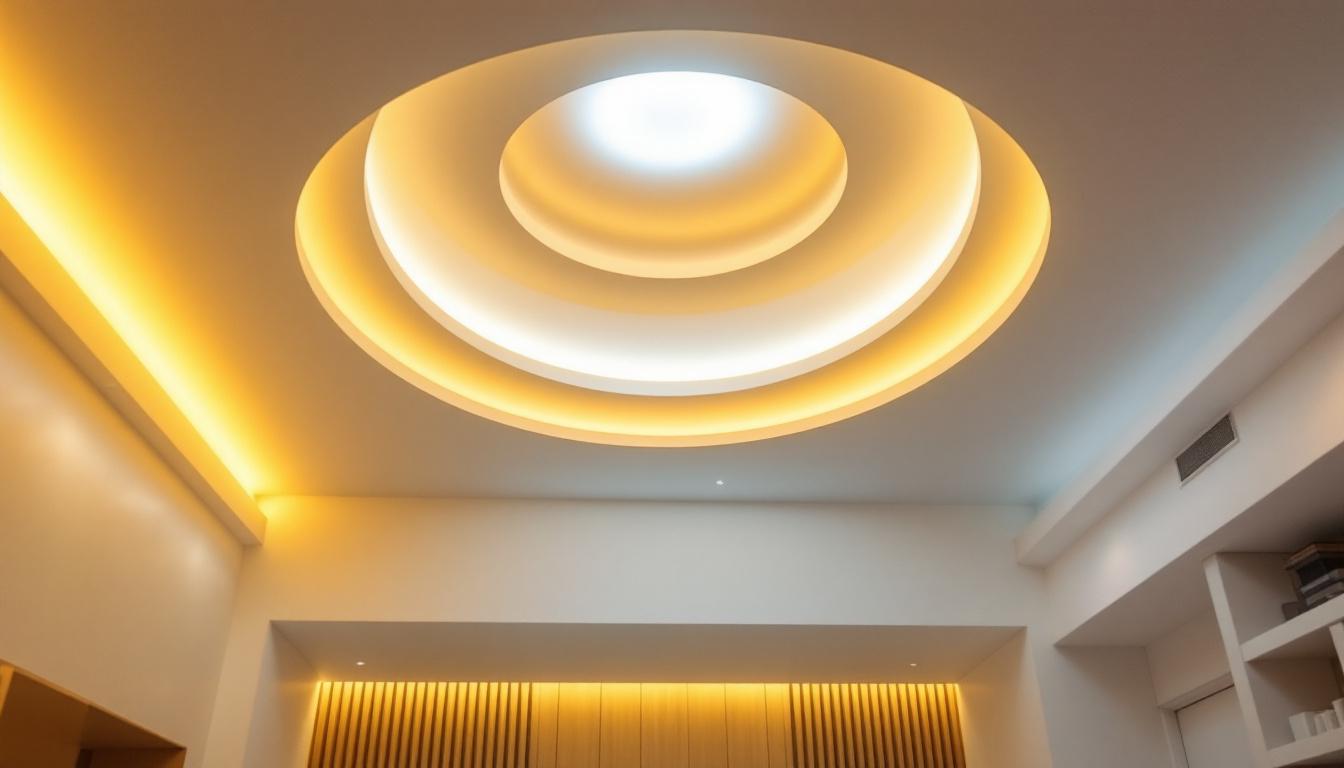
In the dynamic world of lighting design and installation, contractors face a myriad of challenges. While technical skills and knowledge are crucial, there are often overlooked aspects that can significantly impact the success of a project. Understanding these nuances can elevate a contractor’s work from satisfactory to exceptional.
One of the most critical yet frequently overlooked aspects of lighting contracting is the deep understanding of client needs. While it may seem straightforward, many contractors jump straight into technical specifications without fully grasping the client’s vision.
Initial consultations are not merely a formality; they are an opportunity to build rapport and trust. During these meetings, contractors should engage clients in discussions about their preferences, lifestyle, and the specific ambiance they wish to create. This dialogue can unveil insights that may not be immediately apparent, guiding the project in a direction that aligns with the client’s expectations. Furthermore, these consultations allow contractors to educate clients about the various lighting options available, including energy-efficient solutions and smart lighting technologies. By providing this information, contractors can empower clients to make informed decisions that reflect their values and priorities.
Each space has its unique characteristics and requirements. A one-size-fits-all approach can lead to dissatisfaction. Lighting contractors should take the time to analyze the architectural features, color schemes, and intended use of the space. By customizing solutions, they can enhance both functionality and aesthetics, ultimately leading to a more satisfied client. Additionally, understanding the natural light patterns within a space can significantly influence the choice of artificial lighting. For example, a room that receives ample sunlight during the day may require softer, warmer tones in the evening to create a cozy atmosphere, while a dimly lit area might benefit from brighter, more focused lighting to improve visibility and usability. This nuanced approach not only elevates the design but also demonstrates a contractor’s commitment to meeting the client’s unique needs.
While aesthetics are important, technical considerations cannot be overlooked. Many contractors focus heavily on design elements but neglect the underlying technical aspects that ensure a successful lighting installation.
Correctly calculating electrical loads is essential for any lighting project. Underestimating the load can lead to circuit failures, while overestimating can result in unnecessary expenses. Contractors should be diligent in assessing the electrical capacity of the existing infrastructure and ensuring that their designs comply with local codes and regulations. Additionally, it is crucial to consider the future scalability of the lighting system. As technology evolves and energy demands change, having a flexible design that can accommodate additional fixtures or upgrades without extensive rewiring can save both time and money in the long run. This foresight not only enhances the functionality of the installation but also provides peace of mind to clients who may wish to expand their lighting systems in the future.
In an era where sustainability is paramount, lighting contractors must prioritize energy-efficient solutions. Many clients are increasingly concerned about their carbon footprint and energy bills. By recommending LED fixtures and smart lighting systems, contractors can not only meet client demands but also contribute to broader environmental goals. This approach can also be a selling point, showcasing the contractor’s commitment to modern, responsible practices. Furthermore, integrating smart technology allows for advanced control options, such as dimming capabilities and automated scheduling, which can significantly reduce energy consumption. Educating clients about the long-term savings associated with these technologies, including potential rebates or tax incentives for energy-efficient installations, can enhance their overall satisfaction and loyalty. As the industry continues to evolve, staying informed about the latest advancements in energy-efficient lighting will empower contractors to provide innovative solutions that align with both client needs and environmental stewardship.
Effective project management is often an overlooked skill in the lighting contracting industry. While technical expertise is essential, the ability to manage timelines, budgets, and communication can make or break a project. A successful project manager not only coordinates tasks but also anticipates challenges and devises strategies to mitigate risks, ensuring that the project runs smoothly from inception to completion.
Contractors should be realistic when setting project timelines. Rushing can lead to mistakes, while overly generous timelines may frustrate clients. Clear communication about potential delays and challenges is crucial. By setting achievable deadlines and keeping clients informed, contractors can foster a sense of trust and professionalism. Additionally, incorporating buffer time for unexpected issues—such as supply chain delays or adverse weather conditions—can enhance the reliability of the timeline and help maintain client satisfaction throughout the project lifecycle.
Budgeting is another critical area where contractors often fall short. A well-defined budget should encompass all aspects of the project, including materials, labor, and unforeseen expenses. Regularly reviewing the budget throughout the project can help avoid surprises and ensure that the project remains financially viable. Furthermore, utilizing project management software can streamline this process, allowing contractors to track expenses in real-time and make informed decisions quickly. Engaging in proactive discussions with suppliers and subcontractors about pricing and potential discounts can also contribute to more effective budget management, ultimately leading to increased profitability and stronger relationships within the industry.
Effective communication is the backbone of successful project management. It is essential for contractors to establish clear lines of communication not only with clients but also with their team members and subcontractors. Regular meetings, updates, and feedback sessions can help ensure that everyone is on the same page and that any issues are addressed promptly. Additionally, employing collaborative tools can facilitate seamless communication, allowing for instant sharing of project updates, changes, and documentation. By fostering an environment of open dialogue, contractors can encourage teamwork and enhance overall project efficiency.
Effective communication is the backbone of any successful project. Lighting contractors often overlook the importance of maintaining open lines of communication with clients, suppliers, and other contractors involved in the project.
Clients appreciate being kept in the loop. Regular updates about project progress, changes, and challenges can help manage expectations and build trust. Contractors should schedule periodic check-ins, allowing clients to voice concerns and provide feedback. This collaborative approach not only enhances client satisfaction but also fosters a positive working relationship.
Lighting projects often involve multiple trades, including electricians, interior designers, and builders. Effective collaboration with these professionals is essential for a seamless installation. Contractors should engage in proactive communication, ensuring that everyone is on the same page regarding timelines, responsibilities, and design elements. This teamwork can prevent misunderstandings and ensure that the project runs smoothly.
Many contractors view their job as complete once the installation is finished. However, a post-installation follow-up can significantly enhance client satisfaction and lead to future referrals.
A walk-through after installation allows contractors to address any immediate concerns and ensure that the lighting functions as intended. This step not only demonstrates professionalism but also provides an opportunity for clients to ask questions and express any dissatisfaction. Addressing these issues promptly can prevent negative feedback and build long-term relationships.
Providing ongoing maintenance and support can set a contractor apart from the competition. Clients appreciate knowing that they can reach out for assistance or advice after the project is complete. By offering maintenance packages or regular check-ins, contractors can maintain a connection with clients and encourage repeat business.
The lighting industry is constantly evolving, with new technologies and design trends emerging regularly. Contractors who fail to stay informed risk falling behind their competitors.
Investing time in continuing education and training is essential for lighting contractors. Workshops, webinars, and industry conferences provide valuable insights into the latest products, technologies, and techniques. By staying informed, contractors can offer innovative solutions that meet the changing needs of their clients.
Smart lighting systems, energy management tools, and advanced design software are just a few examples of technologies that can enhance lighting projects. Contractors should be open to embracing these advancements, as they can improve efficiency, reduce costs, and enhance the overall client experience. Demonstrating knowledge of cutting-edge technologies can also position contractors as industry leaders.
Compliance with legal and regulatory standards is a critical aspect of any lighting project. However, many contractors overlook the importance of staying updated on local codes and regulations.
Each region has its own set of electrical codes and regulations that must be adhered to during installation. Failing to comply can result in fines, project delays, and even safety hazards. Contractors should invest time in understanding these codes and ensuring that their designs meet all necessary requirements. This diligence not only protects the contractor but also ensures the safety of the end-users.
Obtaining the necessary permits and scheduling inspections are essential steps in the lighting installation process. Contractors should familiarize themselves with the permitting process in their area and ensure that all required documentation is submitted promptly. This proactive approach can prevent delays and ensure that the project progresses smoothly.
Educating clients about their lighting systems is often overlooked but can significantly enhance their satisfaction and understanding of the project.
Once the installation is complete, contractors should take the time to explain how the lighting system works. This includes demonstrating how to use smart controls, adjust settings, and maintain fixtures. Clients who understand their systems are more likely to be satisfied and can better appreciate the value of the contractor’s work.
Providing clients with documentation that outlines system specifications, maintenance guidelines, and troubleshooting tips can empower them to take care of their lighting systems. This resource not only enhances client satisfaction but also positions the contractor as a knowledgeable and supportive partner.
In the competitive field of lighting contracting, attention to detail can set successful contractors apart from the rest. By focusing on client needs, technical considerations, project management, communication, and ongoing education, contractors can elevate their services and ensure a successful project outcome. Recognizing and addressing these often-overlooked aspects can lead to increased client satisfaction, repeat business, and a stellar reputation in the industry.
As you strive to avoid the common oversights in lighting contracting, partner with LumenWholesale to ensure every aspect of your project shines. Our commitment to providing top-quality, spec-grade lighting products at unbeatable wholesale prices means you can deliver exceptional results without compromising on cost or quality. With our extensive selection that meets the highest industry standards and the convenience of free shipping on bulk orders, you’re set to exceed client expectations. Elevate your lighting projects and enhance your professional reputation by choosing Wholesale Lighting at the Best Value with LumenWholesale.

Explore the common pitfalls lighting contractors face when implementing disinfecting light solutions.

Discover the ultimate guide for lighting professionals with our essential checklist for household security lights.

Discover why ceiling light coves are essential for lighting contractors in this insightful article.

Discover the essential best practices for warehouse lighting fixtures in this comprehensive guide tailored for lighting contractors.